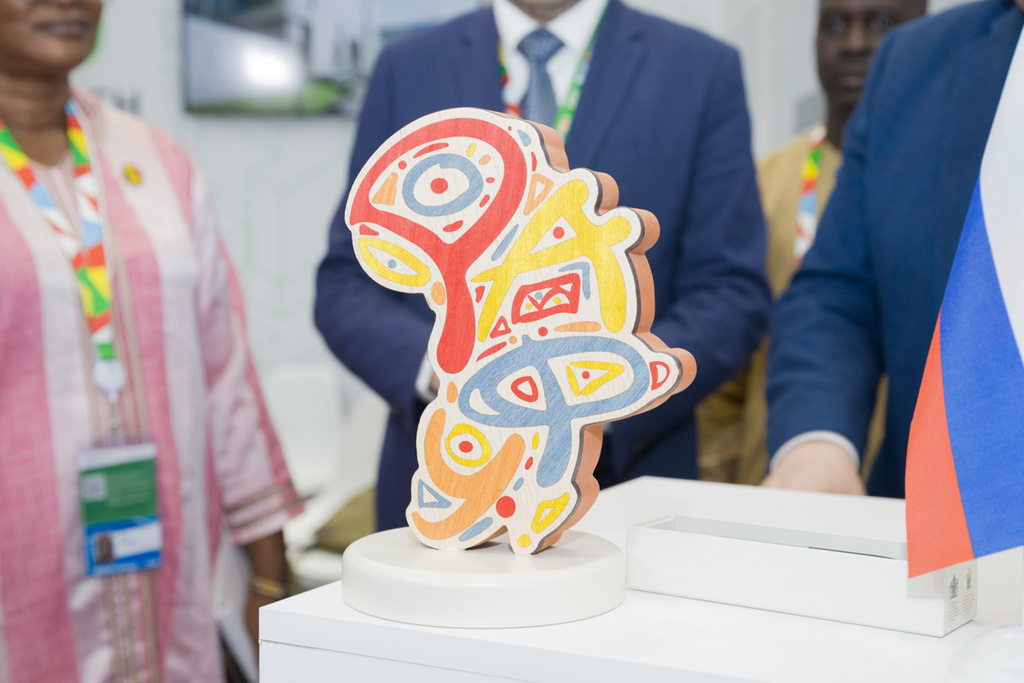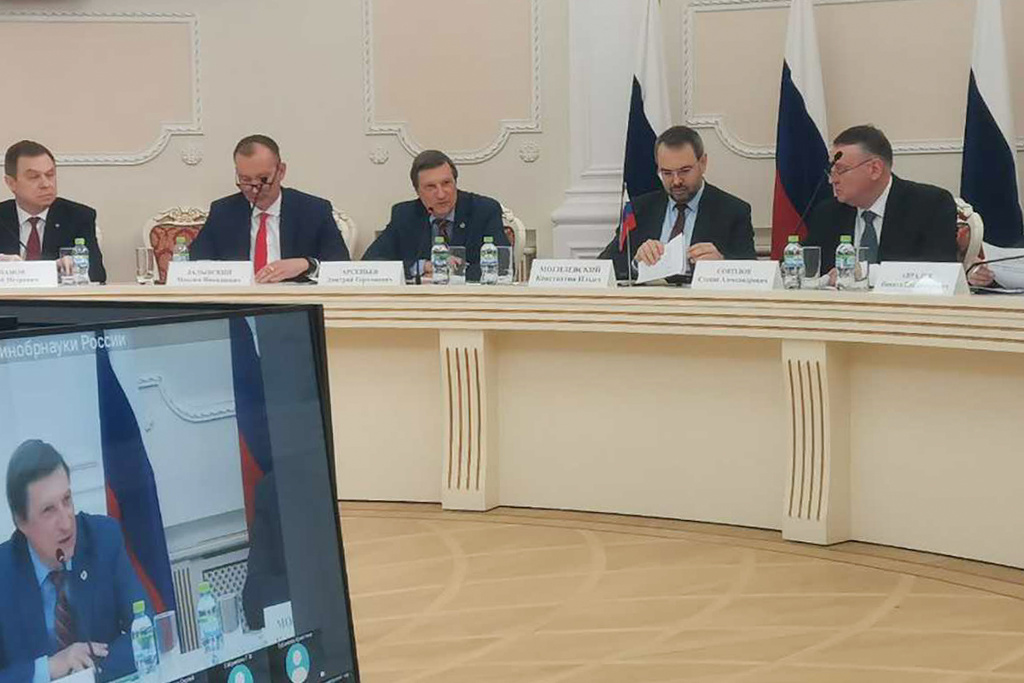RAFU at the expert platform of the Ministry of Education and Science of Russia: strengthening Russian-African cooperation
More than 50 RAFU universities, including SPbPU, MSU, MGIMO, RUDN, MPEI, RSUH, and MGRI, took part in a strategic meeting of the Ministry of Science and Higher Education of the Russian Federation dedicated to the development of the Russian-African Network University (RAFU). The meeting was held in the boardroomof the Ministry of Education and Science of Russia. Representatives of the Polytechnic University, the coordinator of the RAFU consortium, presented a report on the activities of RAFU, noting key achievements and plans to strengthen cooperation with African countries.

Deputy Minister of Science and Higher Education of the Russian Federation Konstantin Mogilevsky emphasized the role of SPbPU in the development of the project in his speech: Two years ago, at the Russia-Africa Economic Forum, the baton of coordinating RAFU was passed to St. Petersburg Polytechnic University. During this time, the consortium has made a qualitative leap: today it includes 90 Russian and 45 African organizations from 15 countries. The Summer Multidisciplinary University, which is being held for the fourth time, has become a key project. However, it is important to move forward - to develop higher education programs, network formats, and double degrees. SPbPU, which has serious experience in this area, can become a driver of such changes.
Vice-Rector for International Affairs of SPbPU Dmitry Arsenyev focused on the transformation of RAFU into a multifunctional platform: We consider RAFU not only as an educational project but also as a tool for accessing scientific, personnel, and youth resources. Over the past two years, we have managed to expand our geography, create a working project office, and hold dozens of events. The next step is to integrate network programs and quotas that will enhance the practical benefits of the consortium for Russian-African relations.
The head of the RAFU project office, Maxim Zalyvsky, presented the consortium's achievements. An important step was updating the RAFU website, which has become a working tool with 14 sections, an online catalog of 120 courses, and regularly updated news. To promote the consortium's brand, RAFU days were held in Mali and Morocco, where information centers were opened, as well as large-scale sessions at the St. Petersburg International Economic Forum, the Youth Festival, and the Russia-Africa Summit.
Maxim Zalyvsky paid special attention to the RAFU Summer Multidisciplinary University, which has increased the number of participants from 100 to 300 people in four years and the geography from 10 to 33 countries. The program has shifted its focus from cultural and historical tracks to professional internships and advanced training with the participation of industrial partners, such as the Mali Artificial Intelligence Center. In 2025, 20 educational programs are planned, some of which will be associated with a project dedicated to developing a concept for reforming higher engineering education in Mali. Russian universities are participating in the development of a concept for the creation and curricula of educational programs for the new Polytechnic University of Bandiagara in priority areas of Mali's development. The speaker particularly noted the initiative to create network master's programs with universities in Egypt, Algeria, Zimbabwe and other countries, as well as the development of ten joint Russian-African projects in 2024, which the Russian Ministry of Education and Science annually supports with grants.

The meeting participants discussed initiatives to allocate quotas for African students within the framework of network programs and the significant role of the project in developing cooperation with African countries. They emphasized the importance of RAFU as an effective tool for interaction and made proposals to optimize the consortium's work aimed at increasing its practical impact.
The RAFU member universities highly appreciated the work of SPbPU as the consortium coordinator. Polytechnic will continue to expand the partner network and introduce new cooperation formats aimed at the sustainable development of the regions of Russia and Africa.
Summing up the meeting, Konstantin Mogilevsky proposed creating scientific laboratories for assessing colonial damage on the basis of the leading RAFU consortium member universities - a project that can strengthen the expert status of the association. The participants also agreed to hold regular meetings of the RAFU Presidium to develop strategic decisions and operational planning and strengthen partnerships with African countries.